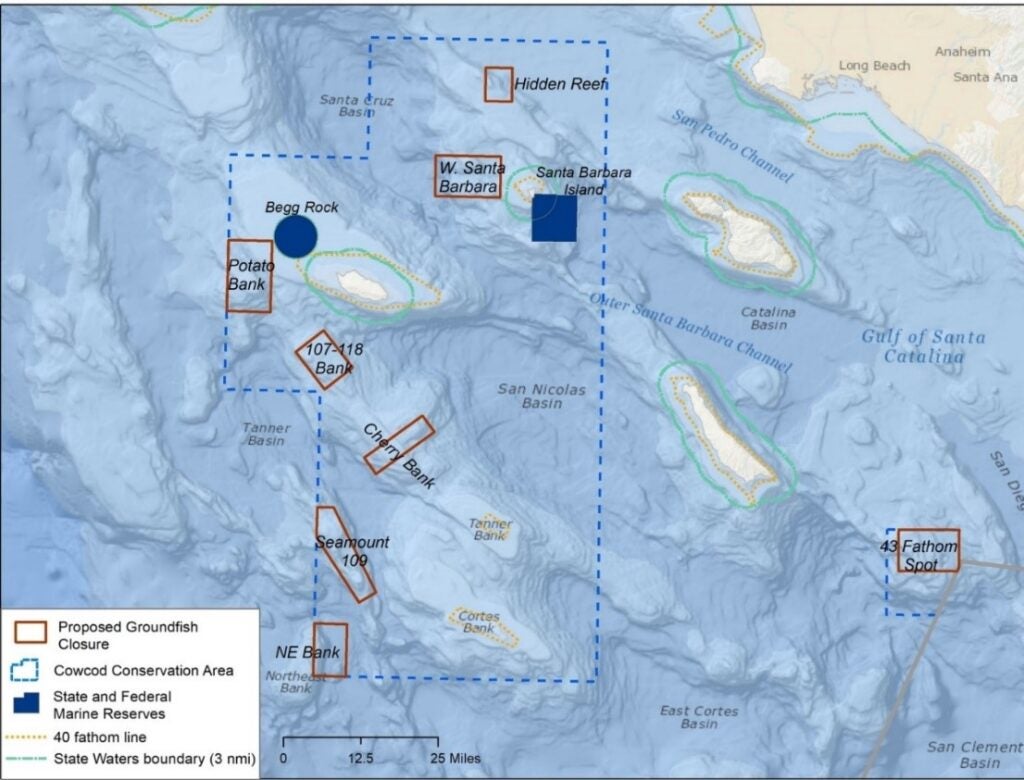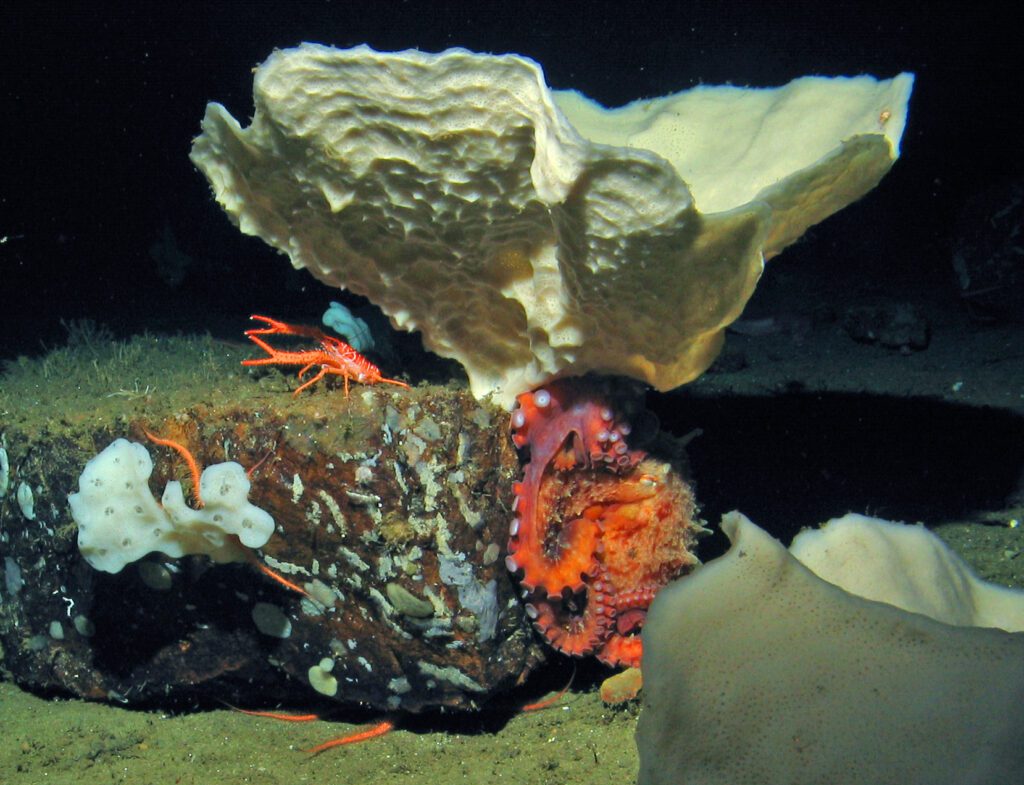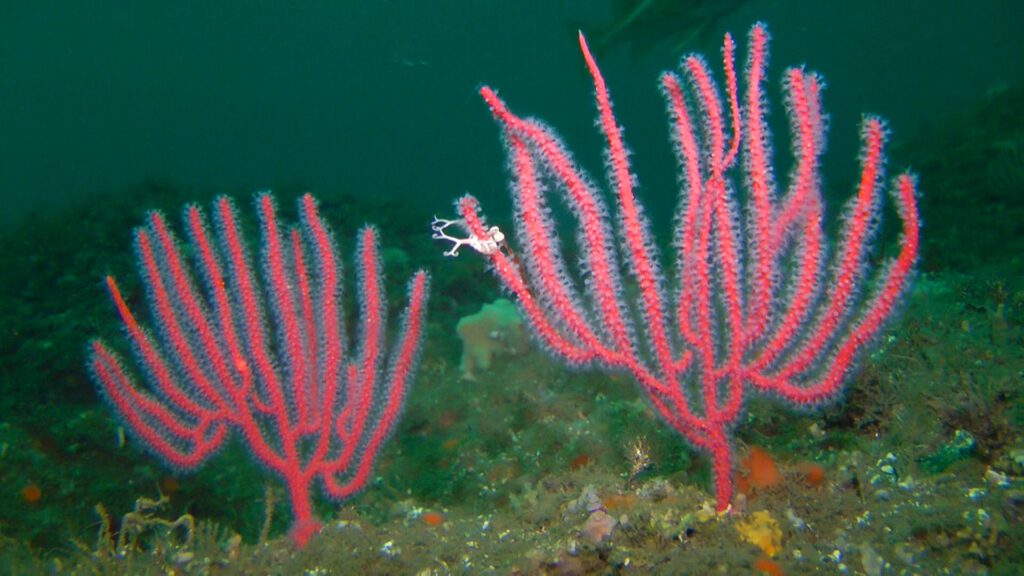New Year Brings New Protections for Deep-Sea Corals and New Ocean Fishing Opportunities
A Win-Win for Sustainable Fishing and Ocean Conservation
Press Release Date: January 8, 2024
Location: MONTEREY, CALIF
Contact:
Ashley Blacow | email: ablacow@oceana.org | tel: 1.831.643.9220
New rules took effect January 1 permanently protecting the most fragile and diverse deep sea corals off Southern California. Spanning more than 600 square miles, eight distinct areas are now closed to all commercial and recreational groundfish fishing gears to protect the living seafloor. Simultaneously, more than 4,500 square miles of ocean waters in the region are now re-open to recreational and commercial fishing for groundfish species following more than 20 years of closures to recover cowcod rockfish. This advancement for sustainable fishing and ocean conservation is the result of a unique collaboration between fishermen and the conservation organization Oceana, with support from the California Department of Fish and Wildlife. The National Marine Fisheries Service finalized the regulations following a vote for these changes last March by the Pacific Fishery Management Council — a 14-member federal advisory body.
Similarly, the new rules protect five reefs offshore Oregon from all commercial groundfish fishing gear designed to contact the seafloor to protect the diversity of ocean life living there. The five conservation areas off Oregon total 182 square miles in size.
Dr. Geoff Shester, Oceana’s California campaign director and senior scientist, released the following statement in response:
“This is a win-win for fishing communities and ocean biodiversity. Almost half of the area’s known deep-sea corals will be permanently protected while restoring fishing access in areas that were once incredibly important to Southern California fishing interests. These well-crafted conservation measures combined with science-based limits on fish catches can protect and restore the bounty of our oceans, with big benefits for the ecosystem and for people. This shows that ocean conservationists and fishermen can work together to support common goals for biodiversity protection and responsible fishing.”
Background:
For more than 20 years, two large ocean areas off Southern California spanning from the Channel Islands to the U.S./Mexico border — called “Cowcod Conservation Areas” — have been closed to nearly all recreational and commercial bottom fish fishing to recover an overfished and important rockfish called cowcod. The conservation areas were successful and cowcod rockfish — named because of their large size, reaching almost 3 feet long and 55 years of age — are flourishing once again. This entire area will remain off limits to bottom trawling, but as fishing opportunities using hook and line gears are restored, fishing and conservation interests came together to protect some of the most spectacular coral and sponge gardens off California that support a healthy ocean from the seafloor up. These include areas recently discovered by Oceana on an at-sea expedition using remotely operated vehicles.
Deep-sea corals and sponges are inordinately important living structures that offer shelter from predators, feeding areas, and nurseries for recreationally and commercially sought-after fish species plus many other creatures like sea stars and octopus. The changes will increase access to important fishing grounds, supporting the multi-billion-dollar sportfishing industry in Southern California and restoring fishing opportunities for local commercial fishermen.
The eight new Groundfish Exclusion Areas combined total more than 425 square miles, accounting for 8% of the total area of the two Cowcod Conservation Areas and protecting 48% of the known deep-sea corals in the region. Over 4,800 square miles (larger than San Diego County) were reopened to non-trawl groundfish fishing.

Areas within the Cowcod Conservation Areas will be reopened to non-trawl commercial and recreational fishing, while the newly proposed Groundfish Closures (Groundfish Exclusion Areas) and existing marine reserves will remain closed.

An octopus hides out while a squat lobster stands on guard beneath a vase sponge at a recently identified reef off Santa Barbara Island (© Oceana).

Colorful cold-water corals documented on Arago Reef off Oregon (© Oceana).
Additional images of Southern California’s deep sea corals and sponges photographed during an Oceana science expedition can be accessed here.
Oceana is the largest international advocacy organization dedicated solely to ocean conservation. Oceana is rebuilding abundant and biodiverse oceans by winning science-based policies in countries that control one-quarter of the world’s wild fish catch. With more than 275 victories that stop overfishing, habitat destruction, oil and plastic pollution, and the killing of threatened species like turtles, whales, and sharks, Oceana’s campaigns are delivering results. A restored ocean means that 1 billion people can enjoy a healthy seafood meal every day, forever. Together, we can save the oceans and help feed the world. Visit Oceana.org to learn more.



